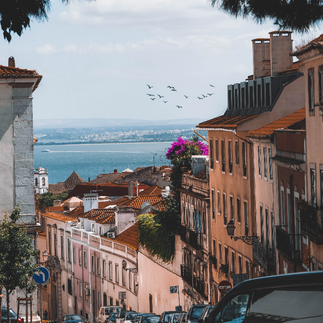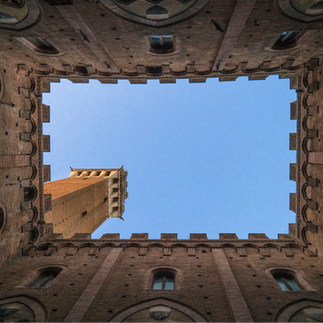
Alfama, the oldest neighborhood in Lisbon, offers a mesmerizing blend of history, culture, and vibrant local life. Nestled between the São Jorge Castle and the Tagus River, Alfama is a labyrinth of narrow streets, hidden squares, and traditional Fado music that echoes through its alleyways. This guide will help you discover all you need to know about Alfama, from its historical landmarks to the best places to eat and experience authentic Portuguese culture.
Alfama's Historical Significance
Origins and History
Alfama's history dates back to the Moorish period, evident in its narrow, winding streets designed to keep the area cool during hot summers. Originally a fishing community, it has preserved much of its medieval charm and character. Walking through Alfama feels like stepping back in time, with its cobblestone streets, historic buildings, and traditional azulejos (ceramic tiles).
Architectural Highlights
Alfama is home to several architectural gems that reflect its rich past. The São Jorge Castle, perched atop one of Lisbon’s highest hills, offers panoramic views of the city and the river. The Lisbon Cathedral (Sé de Lisboa), one of the city’s oldest churches, showcases Romanesque, Gothic, and Baroque architectural styles. Don't miss the National Pantheon, with its impressive dome and the Church of Saint Anthony, built on the saint’s birthplace.
Things to Do in Alfama
Explore the Streets and Alleys
Wandering through Alfama’s narrow streets is an adventure in itself. Each turn reveals a new surprise, whether it's a quaint café, a beautiful viewpoint, or a hidden courtyard. The neighborhood is best explored on foot, allowing you to soak in its atmosphere and discover its many charms at your own pace.
Visit Fado Houses
Fado music, a soulful and melancholic genre, originated in Alfama. Several Fado houses offer performances along with traditional Portuguese meals. Places like Clube de Fado and Parreirinha de Alfama provide an authentic experience of this UNESCO-recognized musical tradition.
Miradouros (Viewpoints)
Alfama boasts some of the best viewpoints in Lisbon. The Miradouro de Santa Luzia offers stunning views of the Tagus River and Alfama’s rooftops, while the Miradouro da Graça provides a broader panoramic view of the city. These spots are perfect for photography or simply soaking in the scenic beauty of Lisbon.
Local Markets
Feira da Ladra, Lisbon's oldest flea market, is held every Tuesday and Saturday near the National Pantheon. Here, you can find a variety of antiques, crafts, and second-hand goods. It’s a great place to hunt for unique souvenirs and immerse yourself in local culture.
Culinary Delights in Alfama
Traditional Portuguese Cuisine
Alfama is a gastronomic haven with numerous restaurants offering traditional Portuguese dishes. Try Bacalhau à Brás (a codfish dish), Caldo Verde (a green soup), and Pastéis de Nata (custard tarts). Restaurants like A Baiuca and Tasca do Jaime are renowned for their authentic cuisine and warm hospitality.
Cafés and Pastry Shops
For a coffee break or a sweet treat, visit some of Alfama’s charming cafés and pastry shops. Pastelaria Santo António is famous for its delicious Pastéis de Nata, while Café Do Eléctrico offers a cozy atmosphere and excellent coffee.
Wine Bars
Alfama also boasts a selection of wine bars where you can sample Portuguese wines. The Wine Bar do Castelo offers a wide variety of wines along with stunning views, making it a perfect spot for a relaxing evening.
Cultural and Historical Sites
São Jorge Castle
A visit to Alfama wouldn't be complete without exploring São Jorge Castle. This historic fortress dates back to the 11th century and offers breathtaking views of Lisbon. The castle grounds include a small museum and archaeological site, providing insights into Lisbon's history.
Lisbon Cathedral
The Sé de Lisboa, or Lisbon Cathedral, is another must-see. This iconic landmark has stood since the 12th century and features a mix of architectural styles. Inside, you can explore its chapels, cloisters, and treasury.
Museu do Fado
The Fado Museum is dedicated to the history and evolution of Fado music. It houses exhibits, multimedia displays, and artifacts related to this unique genre. It’s a fantastic place to learn about Fado’s cultural significance and its impact on Portuguese identity.
Experiencing Local Life
Festivals and Celebrations
Alfama is vibrant with festivals throughout the year. The Festas de Lisboa in June celebrates the city's patron saint, Santo António, with street parties, music, and traditional sardine barbecues. The Fado Festival in September is another highlight, featuring performances by renowned Fado artists.
Nightlife
While Alfama is quieter compared to other Lisbon neighborhoods, it offers a unique nightlife experience. Many Fado houses stay open late, and small bars and taverns provide intimate settings for enjoying music and local drinks.
Day Trips from Alfama
Due to its central location, Alfama is a convenient starting point for exploring other parts of Lisbon. Take the famous Tram 28 to discover other historic neighborhoods like Baixa and Chiado, or hop on a ferry for a day trip across the Tagus River to Cacilhas.
FAQs
What is the best time to visit Alfama? The best time to visit Alfama is during the spring (April to June) and fall (September to October) when the weather is pleasant, and there are fewer tourists.
How can I get to Alfama? Alfama is easily accessible by public transportation. You can take the famous Tram 28, which passes through many of Lisbon's historic neighborhoods, or use the metro to reach Santa Apolónia station, located near Alfama.
Are there any guided tours available in Alfama? Yes, there are several guided tours available that focus on different aspects of Alfama, such as its history, architecture, and Fado music. These tours provide valuable insights and are a great way to explore the neighborhood.
Is Alfama safe for tourists? Yes, Alfama is generally safe for tourists. However, as with any popular tourist destination, it's advisable to be mindful of your belongings and avoid poorly lit areas at night.
Can I find accommodations in Alfama? Absolutely. Alfama offers a range of accommodations, from charming guesthouses and boutique hotels to vacation rentals. Staying in Alfama allows you to fully immerse yourself in the local atmosphere.
What are some must-try dishes in Alfama? When in Alfama, don’t miss out on traditional dishes like Bacalhau à Brás (codfish), Caldo Verde (green soup), and Pastéis de Nata (custard tarts). Pair these with a glass of Portuguese wine for a complete culinary experience.
Conclusion
Alfama is a captivating neighborhood that beautifully encapsulates the essence of Lisbon. With its rich history, vibrant culture, and authentic charm, it offers a unique travel experience that appeals to all senses. Whether you're exploring its historical sites, savoring local cuisine, or enjoying the soulful tunes of Fado, Alfama promises unforgettable memories. Plan your visit to this enchanting part of Lisbon and discover the magic that makes Alfama truly special.
.png)


































































Comentarios